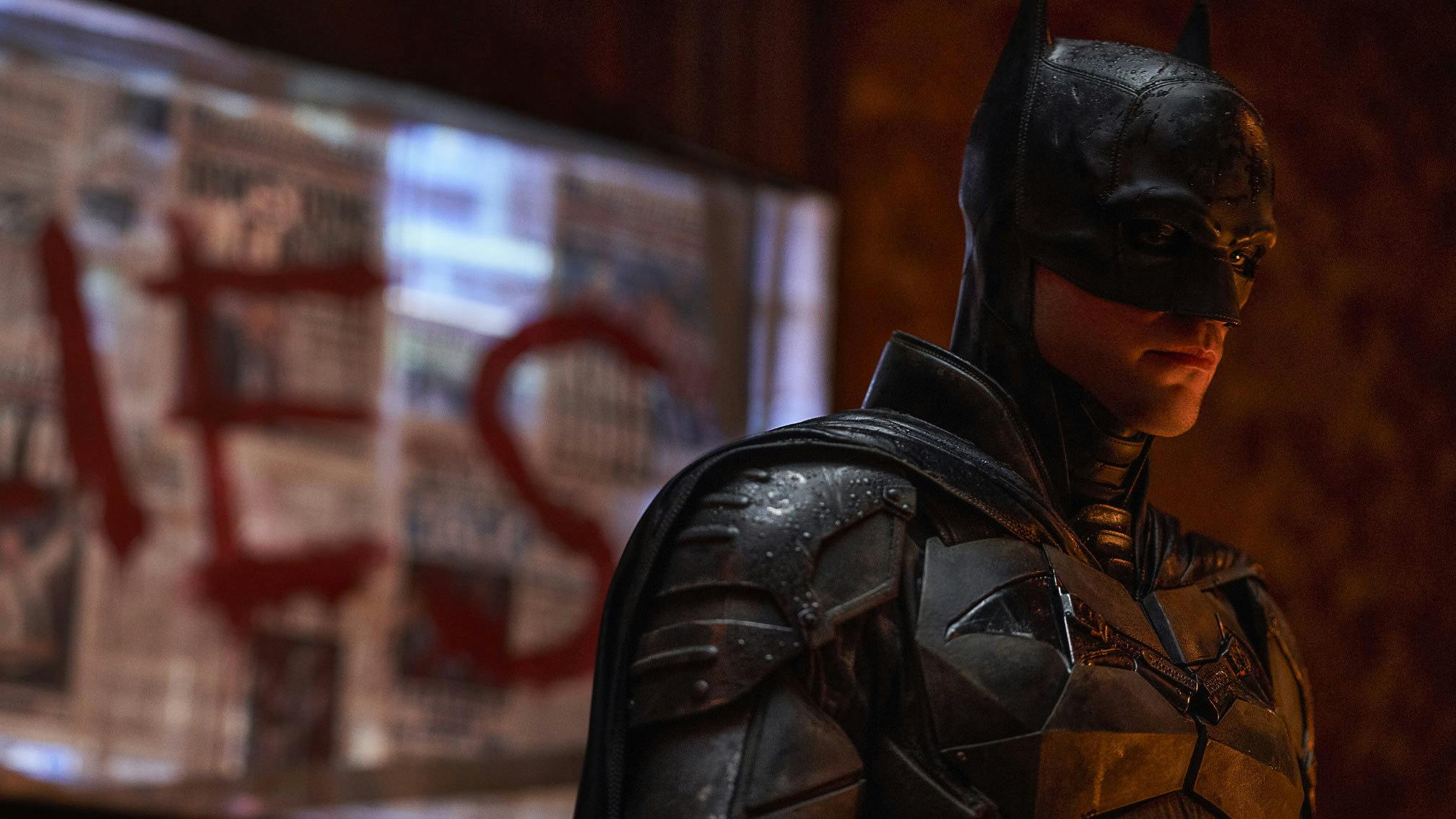But if the Batman – aerodynamic, silent, full of grace – is at one with the shadows, the Riddler is pure thrash metal chaos. Resurrected on celluloid for the first time in 27 years, and played with chilling moral certainty by Paul Dano, this iteration of one of the Dark Knight’s most noted adversaries could well have stepped straight out of song by Slayer. His look, meanwhile, is Slipknot done on the cheap. As befits both bands, not one second of his time onscreen is played for laughs.
Since his inception in comic book form in 1939, there have been a vast array of different takes on the Batman and his wildly dysfunctional world. A number of these have used high camp as their meter, whereas others have emphasised darkness to the point of gloom. This film does neither. Crucially, its setting is consistently reminiscent of Frank Miller’s 1986 graphic novel The Dark Knight Returns – the publication that rehabilitated the character from the garish television series of the 1960s – not least in the manner in which authority, and indeed entire systems of government, are infected by corruption. The distance between the ‘good guys’ and the ‘bad’ is sometimes vanishingly slim. The characters are merely trying to survive as best they know how. They merely want to be heard.
Unlike other superhero franchises, Batman has always been about more than a superhero – because, remember, Bruce Wayne has no superpowers – and his array of colourful adversaries. It is about an ecosystem, a populace, a geographical location to which every character, major and apparently minor, is forever bound. And in Gotham City, as portrayed in The Batman, life is louder than ever.
The Batman is released in cinemas on March 4 – book your tickets now.
